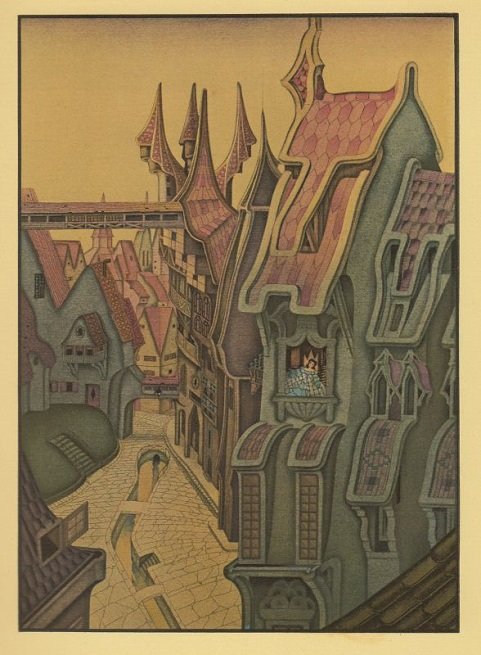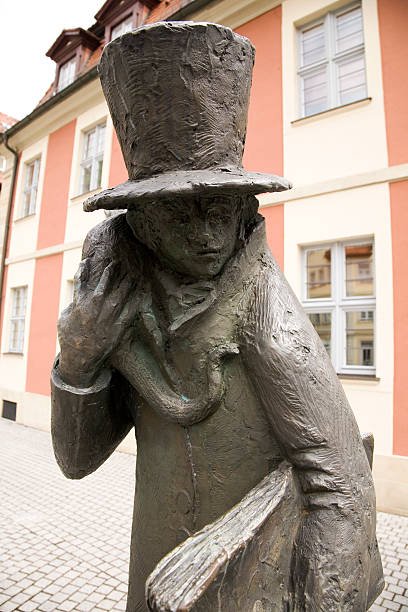Life and creativity of one of E.T.A. Hoffmann
The writer, who elaborates to the sophisticated poetics of the romantic fantasy novel in Germany, is Ernst Theodor Amadeus Hofman. He was born in Königsberg, growing up in the middle of highly educated parents. Even as a child manifests his waking and agile intelligence, he shows a living critical sense, which later as a writer reveals in his satirical and humorous works. He began his career as a musician - he was appointed conductor in the orchestra of the town of Bamberg. After the collapse of the Empire, Napoleon settled in Berlin (1814), where he lived for the rest of his life, working day as a clerk, and writing in the night. He created his name as a master of narrative and novel - the most prized narrative genres in the era of Romanticism in Germany. Addicted to the music adds Mozart to his name as a great honor to the great composer. Artist and composer, he creates a prominence both as a conscientious clerk and a bohemian artist who often draws inspiration in engaging with close friends.
His work is inspired by the philosophy of the nature of Wisdom from the works of Gotthelf Heinrich Schwartz (1780-1860), which studies "the suggestions of nightlife", hypnotic states and somnambulism. The dream in which the first Romantics see a magical mediator through which the truth hidden in us can be revealed is conceived by them as the possession of the unknown and the disturbing. It gives birth to the fantastic visions that Novalis interprets as symbolic notions coming from the East, and Arminus - as unrealistic formations born in exotic Egypt or the Middle Ages. Thanks to the artistic invention of the German romantic writers, the fantastic narratives enter even the world of the guilds, cause shifts in their weekly value system, bring their piety into their minds of "disturbing strangeness" - madness, magnetism and automated human sleepwalking. New mysterious horizons are opened to the readers after reading Hoffman's Tales and Fantasies in Callots Manier , "Nachtstucke", "Serapion's Brothers" In which readers find the controversial manner of this writer, torn by constant conflicts, of perceiving the world. The dichotomy that is present in his weekly life predetermines the original dichotomy on which his artistic works are built.

From ‘The Sandman’ by E.T.A. Hoffmann image source
Hoffman as a narrator and novelist: In the novel "Serapion's Brothers," the hero Cyprian recovers the reader's impressions of the meeting and his conversations with Count von P., who lost his mind after imagining he was the reborn Martyr Seraphion. Although in fact he inhabits the forests of Germany, the Earl suggests that he lives in the deserts of Thebes. To Cyprian, who is trying to cure him of his crazy illusion, the mournful nobleman replies that he prefers to trust the Spirit who unfolds his inner visions before him, for the world can be explained only by them, not by of sensory observations. The captured phantasm captured the same thinking position on the world of the world, which occupies in their theoretical syntheses and in their art most romantics in Germany. As early as the end of the 18th century, Novalis says he is starting from his brilliant insight: "The world becomes a dream, the dream becomes a world." Hoffman also defends the belief that the poet is a distinct clairvoyant for whom the vision coming from within has the same convincing consistency, as well as the reality that comes through our senses from the outside world: He really saw what he said he saw, and so what he was saying deeply mastered the heart and soul.

Hello @godflesh, thank you for sharing this creative work! We just stopped by to say that you've been upvoted by the @creativecrypto magazine. The Creative Crypto is all about art on the blockchain and learning from creatives like you. Looking forward to crossing paths again soon. Steem on!
Thank you very much :)